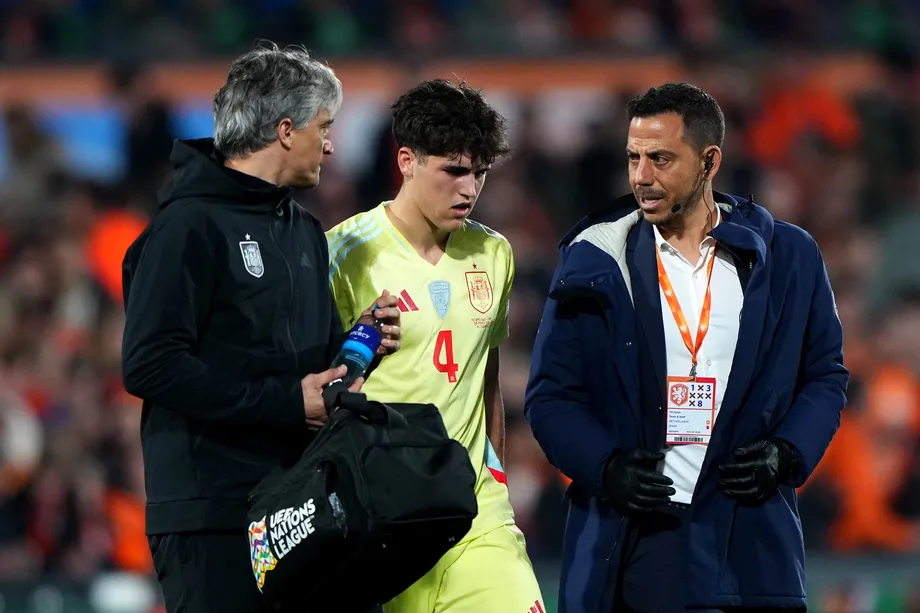
The Atlanta Braves are no strangers to making bold moves in their quest to maintain dominance in Major League Baseball, but a recently proposed trade involving their $74 million All-Star starting pitcher has set the baseball world abuzz. Speculation is swirling about whether the Braves might part ways with one of their most valuable assets, a move that could reshape not only their roster but also the landscape of the league. While the idea of trading a player of this caliber might seem shocking, the underlying dynamics offer a compelling narrative of risk, reward, and strategic foresight.
At the center of this rumor is a pitcher who has become synonymous with the Braves’ recent success. Signed to a $74 million deal, the All-Star ace has been a cornerstone of Atlanta’s rotation, delivering consistently dominant performances and anchoring a team that has thrived in both the regular season and postseason. His ability to combine elite velocity with pinpoint control has made him one of the most feared pitchers in the game, earning accolades and cementing his reputation as a top-tier talent.
However, in the world of professional sports, no player is entirely untouchable. The Braves, despite their consistent success, find themselves at a crossroads. While their core remains strong, the ever-evolving nature of roster construction means that even a team as successful as Atlanta must consider bold moves to stay ahead of the competition. With several key players entering free agency and younger stars demanding extensions, the Braves are grappling with financial constraints and the need to balance immediate contention with long-term sustainability.
The proposed trade would see the Braves sending their star pitcher to a rival team in exchange for a package of young, controllable talent. This kind of deal is not unprecedented in MLB history, where teams have occasionally opted to trade established stars for prospects to refresh their farm system and secure their future. For Atlanta, the potential return could include a mix of high-upside pitchers and position players who could help the team maintain its competitive edge for years to come.
The rationale behind such a trade is multifaceted. First, trading an All-Star pitcher at the height of his value could provide Atlanta with the financial flexibility needed to address other areas of their roster. The savings from his contract could be reinvested into securing extensions for key players or pursuing free-agent signings to bolster the team’s depth. Second, the influx of young talent would inject fresh energy into the organization, ensuring that the Braves remain contenders even as their current core ages.
Of course, any decision to trade a player of this magnitude comes with significant risks. Fans and analysts alike have questioned whether the Braves can afford to part with a pitcher who has been so instrumental to their success. Losing a proven ace could leave a glaring hole in the rotation, one that might not be easily filled, even with the acquisition of promising prospects. Additionally, there is always the possibility that the traded player continues to perform at an elite level for their new team, leaving the Braves to wonder if they made the right decision.
For the All-Star pitcher himself, the trade rumors represent an uncertain chapter in an otherwise stellar career. Having established himself as one of the premier pitchers in the league, he has become a fan favorite in Atlanta, and his contributions to the team’s success cannot be overstated. However, baseball is a business, and even the most loyal players understand that trades are part of the game. Should the deal go through, he would undoubtedly bring his signature intensity and professionalism to his new team, further solidifying his legacy as one of the game’s greats.
The Braves’ front office, led by general manager Alex Anthopoulos, faces a delicate balancing act. Any trade involving a player of this caliber will be scrutinized heavily, with fans, media, and analysts dissecting every aspect of the deal. Anthopoulos has built a reputation for his shrewd decision-making and willingness to take calculated risks, and this proposed trade would certainly fall into that category. His track record suggests that any move made will be in the best interest of the team’s long-term success, even if it initially raises eyebrows.
As the baseball offseason progresses, the fate of the Braves’ All-Star pitcher remains one of the most intriguing storylines. Whether the trade materializes or not, it highlights the complex dynamics that teams must navigate to remain competitive in an ever-changing league. For the Braves, the decision will ultimately come down to weighing the immediate impact of keeping their ace against the potential long-term benefits of a blockbuster trade.
One thing is certain: the proposed trade has sparked intense debate and captured the attention of baseball fans everywhere. If the deal does go through, it could mark a pivotal moment in the Braves’ journey and set the stage for one of the most talked-about seasons in recent memory. For now, all eyes remain on Atlanta as the baseball world awaits the next move in this high-stakes game of strategy and ambition.



